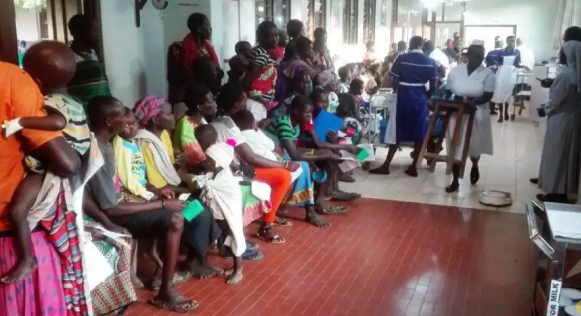Support for non-profit health institutions is emerging as a key priority for the Health Committee of Parliament as it starts its work.
A team of legislators that has visited various facilities in Northern Uganda established that the organisations are providing adequate care for patients at a very subsidized cost, yet getting limited support from the government.
So far, the team has visited St Kizito Hospital-Matany in Napak district, St Mary’s Hospital Lacor in Gulu, Pope John’s Hospital of Atapara (Aber) in Oyam district and Holy Family Hospital Nyapea in Zombo district.
The facilities are all well equipped, highly specialized and offering some of the services that cannot even be found in government hospitals.
For instance, Lacor hospital in Gulu has two anesthesiologists in the whole region, while Pope John’s Hospital of Atapara (Aber) has a CT Scan for detecting bones and joint problems.
According to Kole North MP Dr Samuel Opio, the organizations have provided good medical care in the country at a subsidized cost, even when it comes to the management of COVID-19.
He says that in terms of COVID-19 case management, the government facilities were overwhelmed and many of the cases were handled by the organisations in this category.
Dr Charles Ayume, the chairperson of the Health Committee of Parliament says that the government needs to revise its support to such entities on the basis of the good work the organizations are doing in the communities.
Currently, the organisations get support ranging between 500 to 600 million Shillings from the government annually.
Dr Ayume says that they intend to meet with the heads of the different religions bureaus like the Uganda Muslim Medical Bureau, Uganda Protestant Medical Bureau, Uganda Catholic Medical Bureau, and Uganda Orthodox Medical Bureau to discuss how to work better, including challenges like staffing, funding and equipment, among others.
The medical bureaus started healthcare for the underprivileged rural communities in Uganda. He also says the facilities have the capacities, with some of them having good evacuation plans in ambulances among others.
Their charges are also minimal, standing at between 50,000 and 80,000 Shillings for managing mild cases of COVID-19 and as low as 10,000 Shillings for both normal and caesarian child deliveries.
Dr Sam Okori, the Medical Director of Aber Hospital says that they need the support from Government to increase from the current 600 million to between one and two billion Shillings.
He says this money will be used to recruit more staff, buy essential medicines and further equip the facility among others. Okori also says that the government can also second some health workers to the facility. URN








